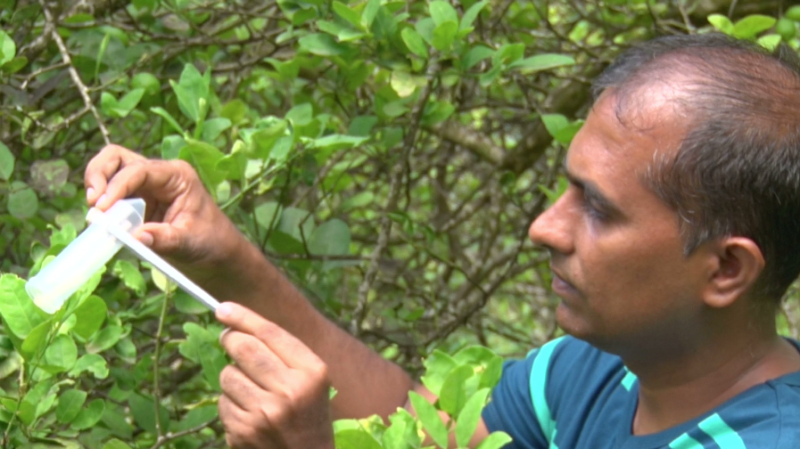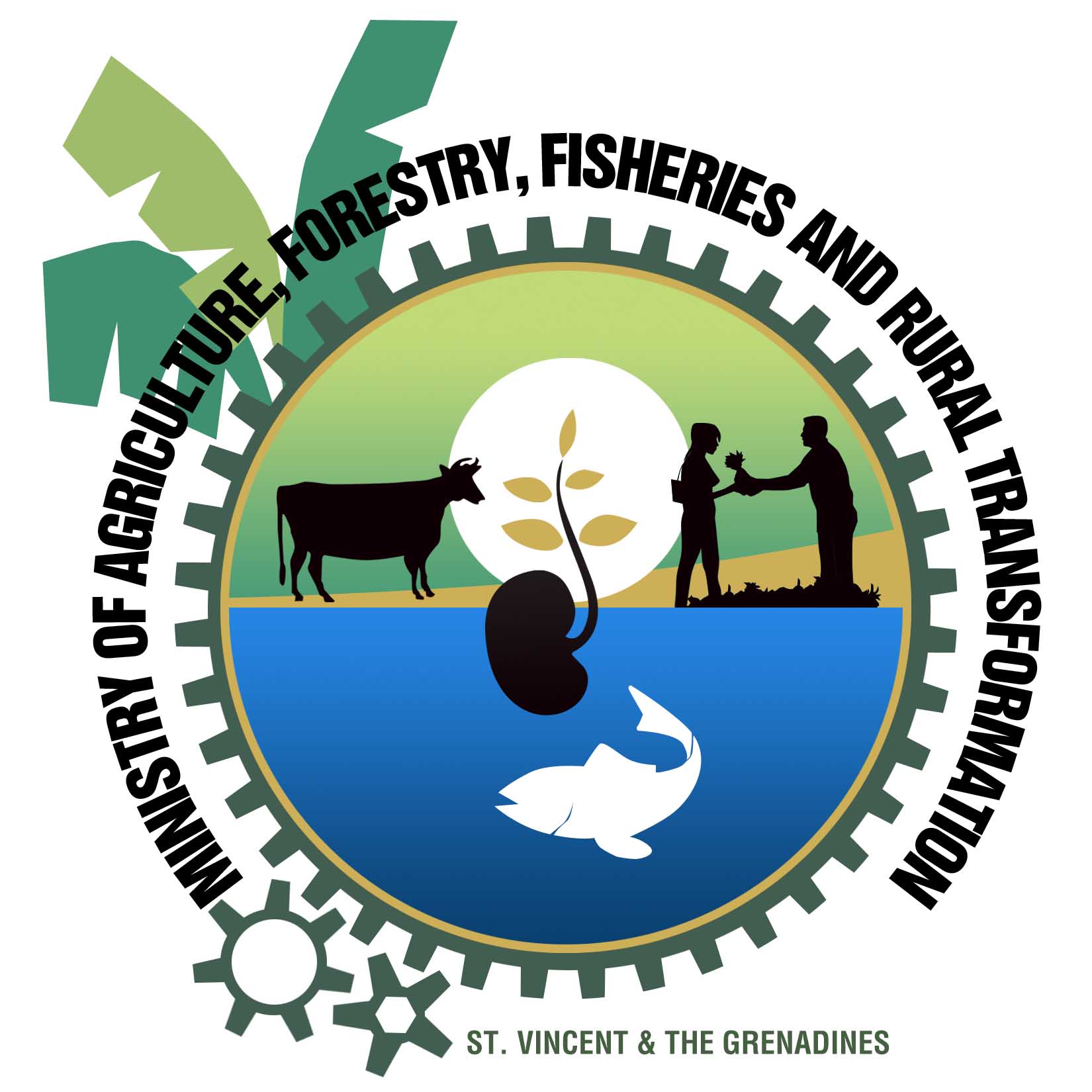 In an attempt to reduce the population of the Asian citrus psyllid (ACP) that transmits the huanglongbing disease or citrus greening, the Ministry of Agriculture recently imported twenty thousand Tamarixia radiata wasps for use in a biological program aimed at suppressing the population of the psyllid.
In an attempt to reduce the population of the Asian citrus psyllid (ACP) that transmits the huanglongbing disease or citrus greening, the Ministry of Agriculture recently imported twenty thousand Tamarixia radiata wasps for use in a biological program aimed at suppressing the population of the psyllid.
The first release of the wasps was done last Friday, July 10th.
This tiny brown insect is about the size of an aphid that poses a serious threat to our nation’s citrus, including those grown in home gardens and on farms.
The Psyllid feeds on all varieties of citrus.
According to Dr. Raffique Bailey of the Research and Development in the Ministry of Agriculture, St Vincent has already lost a lot of citrus due to this disease.
“So we are trying to suppress the population of the Psyllid by introducing these new wasps,” Dr. Bailey explained.
The Asian Citrus Psyllid damages citrus when its nymphs feed on new shoots and leaves. They remove sap from the plant tissue and inject a salivary toxin as they feed.
This deforms new leaves by twisting and curling them and inhibits or kills new shoots.
Bailey outlines the plan of action for his unit in the management and control of the Citrus Greening disease, which includes; the release of parasitic wasp to reduce population levels of the vector species.
Provide the necessary training through various public awareness programs; importation of clean planting materials to facilitate provision of healthy citrus plants for farmers; establishment of appropriate greenhouses for the propagation of clean planting materials; development of a germplasm for various species and varieties of citrus plants; conduct the necessary monitoring and control of both pest and control species. And the removal of diseased plants and treatment of those not affected.
Successful efforts have already been made to introduce the parasitic wasps in major citrus producing countries.
Dr. Bailey ensured that there will be no environmental impact by releasing this wasp.
“It would not have any effect on humans or animal health. Also to note it will not replace or displace any of our local species of insects. So there’s no need for fear towards these wasp.
“It has been introduced to many other Countries and has worked effectively,” he added.
Under ideal conditions the wasp can significantly reduce Psyllid populations.
Farmers stand to benefit greatly from this initiative in the long run, Dr. Bailey said.
“It is part of a three phase project, which involves first the release of the natural enemies, then we plan top propagate new germplasms on the protected structures. Then we will continue the process of pruning and removing infected dying tries.
“So eventually, we will have new germplasms, new materials on the ground and then the population of the psyllid will be so low, that it would not be able to transmit the disease.”


